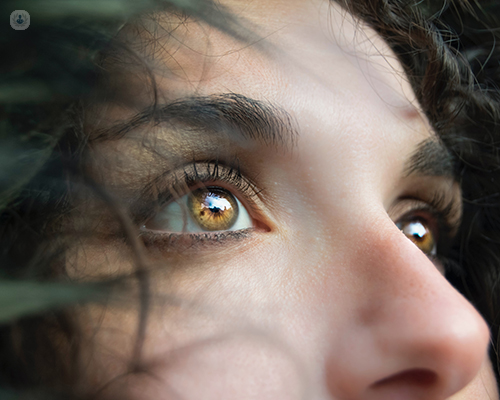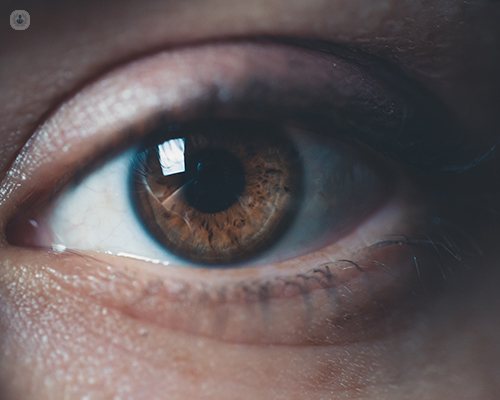Retinal laser: an expert's guide
Written in association with:Several different types of retinal lasers are used to treat various retinal conditions. In her latest article, renowned ophthalmologist Mrs Samantha Mann explains the most common reasons people undergo this procedure as well as what the procedure entails.

When is retinal laser indicated? What conditions can it treat?
Several different lasers are used in ophthalmology. One of these types is the retinal laser, which is used to treat conditions such as diabetes, vein occlusions or macroaneurysms. They are also used to treat retinal tears.
If someone with diabetes starts to suffer from leaking blood vessels at the back of the eye or some swelling, focal laser treatment can be very effective.
If the blood supply in the periphery part of the retina starts to fail, which results in the growth of abnormal blood vessels on the retina or iris, we often perform a more extensive laser treatment called pan-retinal photocoagulation.
How is the laser treatment performed? What effect does it have on the retina?
Most laser treatments are relatively straightforward. After you’ve had your vision checked, and your eyes have been dilated with drops, your doctor will put in some numbing drops and a special lens to stop you from blinking. A bright light will then be shone into the eye, and you will hear a beeping noise. This is the laser being delivered.
If you are having a focal laser treatment for diabetes or a retinal tear, it is usually quick and simple and not painful at all. The laser helps to seal off the leaking blood vessels and has a very long-term effect. It is important to stay very still so that the doctor doesn’t laser the wrong part of the eye.
If you need to have the more extensive pan-retinal laser photocoagulation, it can be a little bit more uncomfortable, especially if we’re lasering around the periphery of the retina.

This laser can help to prevent the further growth of abnormal blood vessels, which can bleed into the eye.
How many sessions or treatments are usually needed?
This depends on the type of laser you are having. It can usually be done in one session. However, if you need a more extensive pan-retinal photocoagulation laser, it will usually need to be delivered in two or three sessions, about two or three weeks apart.
What are the side effects and possible risks involved?
The risks are very low with laser treatment. There is no risk of infection. You may feel dazzled, but this goes away in a few minutes. You will need to keep very still, to allow the doctor to treat the correct part of the eye. If you need to get the pan-retinal laser, this can be slightly uncomfortable at the time of the laser. We usually ask the patient to take a few simple painkillers in the morning and just before the start of the treatment, but most people can tolerate the pain really well.
However, it can affect your night vision and peripheral vision if you need to have extensive laser treatment. However, this laser treatment is very effective at protecting your vision in the long term, and can reduce the risk of bleeding from abnormal blood vessels in the back of the eye. This can lead to blindness if left untreated.

How long is recovery?
The recovery depends on the type of laser you have. Focal laser treatment or lasering a retinal tear only takes a few minutes to recover from. The dazzling usually fades after a few minutes. However, the PRP laser can take a bit longer. For 24 hours, you may have a few visual disturbances or flashing lights, and sometime you may suffer from a headache., However, you should be back to normal after a couple of days. If you have any side effects that last longer, you must contact your doctor.
The effect of the laser can last for several months, and it can take quite a long time for it to have its maximum effect. You may need to undergo a second laser treatment after this time, especially if the retinal problem recurs. It is safe to undergo the treatment again after about 4 months and can be repeated several times.
Mrs Samantha Mann is a highly-renowned consultant ophthalmologist based in London. If you would like to book a consultation with Mrs Mann you can do so today via her Top Doctors profile



